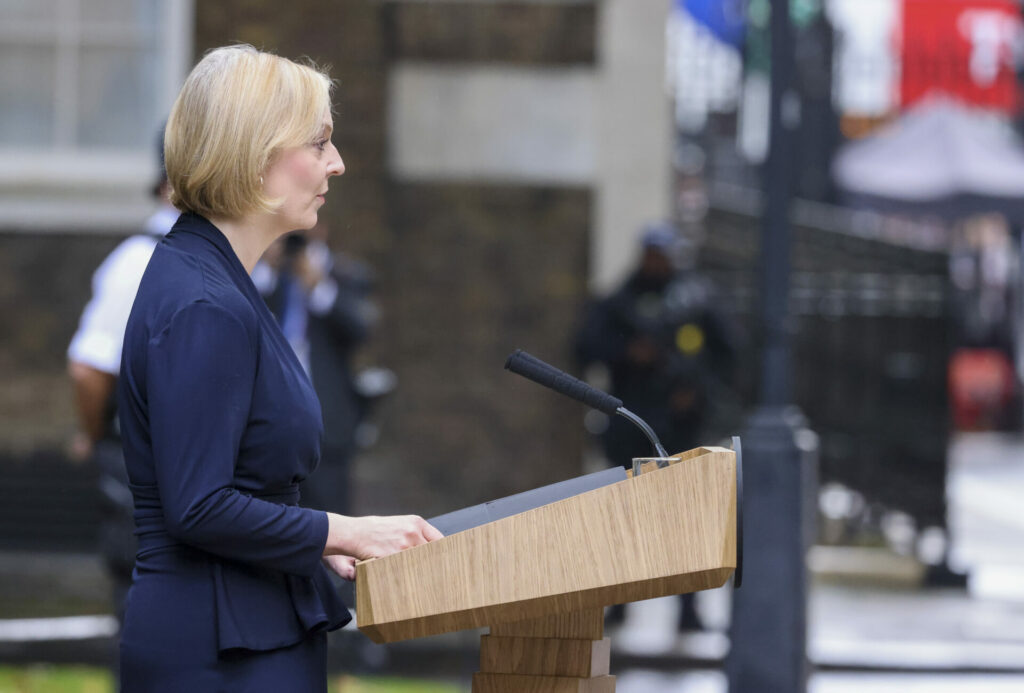After a tumultuous six weeks marked by policy U-turns, criticism from all corners, and outright rebellion from her own party, Liz Truss has resigned, making her the nation's shortest-serving Prime Minister in history.
Having taken office after a leadership contest in which she beat Rishi Sunak as the candidate to replace Boris Johnson – himself beset by a succession of scandals – Truss positioned herself on the extreme of the right-wing Conservative Party and promised to implement policies that aimed to enlarge the UK's economic output.
Truss openly styled herself on Britain's first female premier Margaret Thatcher and espoused an economic agenda that sought to promote business and the country's wealthiest individuals whilst offering little assurances of social protections for less well-off portions of society.
This economic course was set out in the "mini-budget" unveiled on 23 September, which cut tax considerably for the nation's highest earners and would have kept corporation tax low with the aim of stimulating economic activity and appealing to foreign enterprise in a Britain struggling with the financial impediments of Britain's departure from the EU trading bloc.
Related News
- Belgium in Brief: Rubbernecking at the UK
- 'I'm a fighter, not a quitter': Under pressure British PM faces parliament
The proposed measures came under a hail of criticism from financial institutions and members of Truss' own party. Furthermore, the value of the British pound sterling plummeted amid concerns that the measures were uncosted and would undermine confidence in the government's ability to steer the economy through a series of national and international challenges.
Truss made reference to these difficulties in her resignation speech, alluding to "great economic and international instability" as well as "Putin’s illegal war in Ukraine". However, she acknowledged that her "vision for a low tax, high growth economy that would take advantage of the freedoms of Brexit" had become unfeasible.
"I cannot deliver the mandate on which I was elected by the Conservative Party"
UK Prime Minister Liz Truss resignshttps://t.co/O5kO1WJ4tY pic.twitter.com/Gq6FtOGNIP — BBC Breaking News (@BBCBreaking) October 20, 2022
She added that "there will be a leadership election to be completed in the next week. This will ensure we remain on a path to deliver our fiscal plans and maintain our country’s economic stability and national security."
Response
Keir Starmer, leader of the opposing Labour Party, has called for a general election that would almost inevitably see him elected Prime Minister as the Conservative Party majority that had been so big when Boris Johnson won in 2019 has been reduced to a huge deficit, according to polls.
In a televised statement today following last night's chaotic scenes in parliament – in which Conservative MPs were physically pressed into voting on a bill to extend fracking (a means of extracting natural gas or oil from the rocky substrate) – Starmer lambasted the government, stating that "All the failures of the past 12 years have now come to the boil." He went on to condemn the government for "lack[ing] the basic patriotic duty to keep the British people out of their own pathetic squabbles."
Scotland's First Minister Nicola Sturgeon added her voice to calls for a general election, saying it is a "democratic imperative".
There are no words to describe this utter shambles adequately. It’s beyond hyperbole - & parody. Reality tho is that ordinary people are paying the price. The interests of the Tory party should concern no-one right now. A General Election is now a democratic imperative.
— Nicola Sturgeon (@NicolaSturgeon) October 20, 2022
Former Chancellor and main rival in the contest to succeed Johnson, Rishi Sunak is now touted by bookmakers as the most likely successor to Truss.
Financial markets reacted to the news with the pound rising against the US dollar, though the initial spike is now subsiding.

